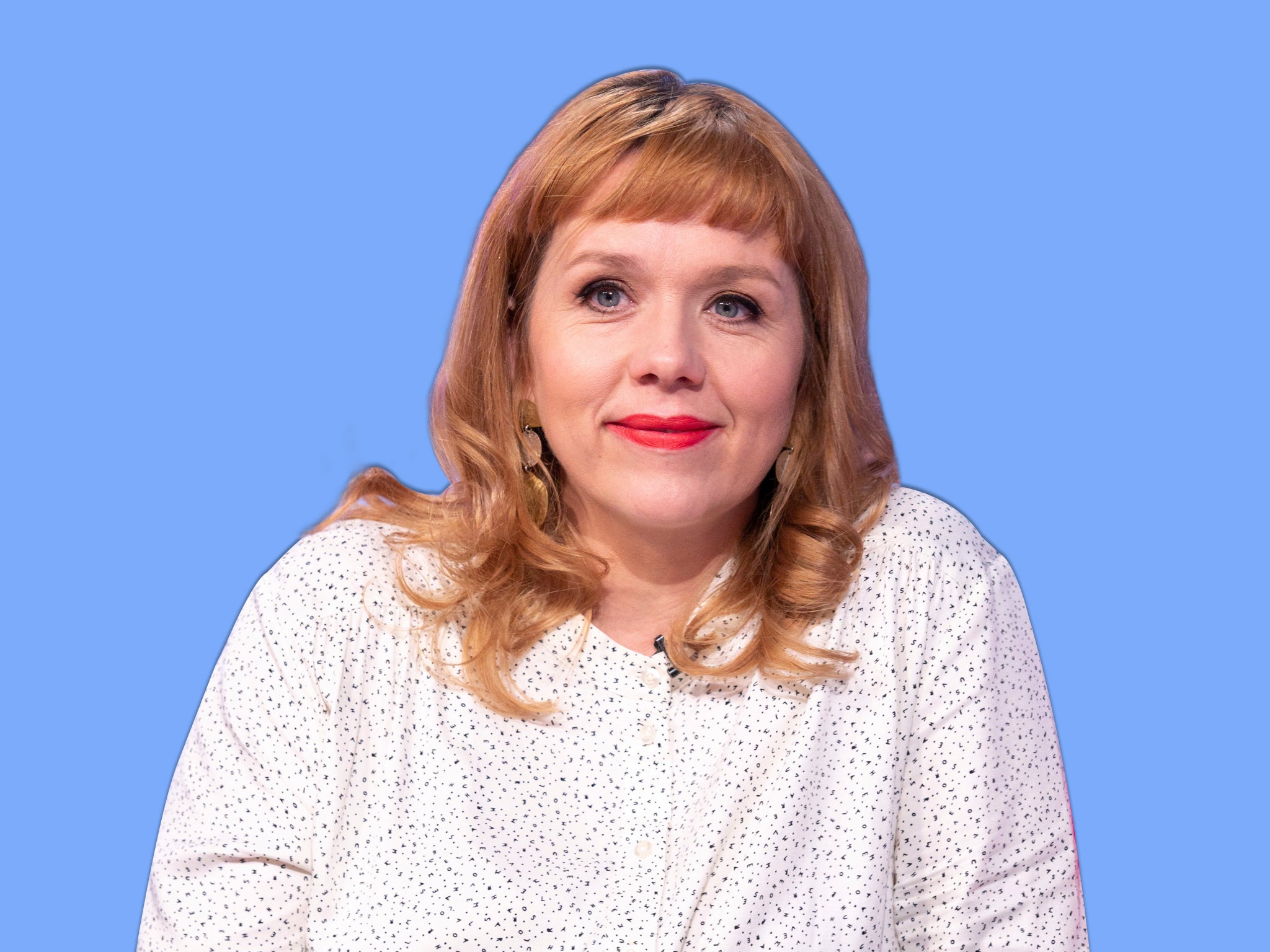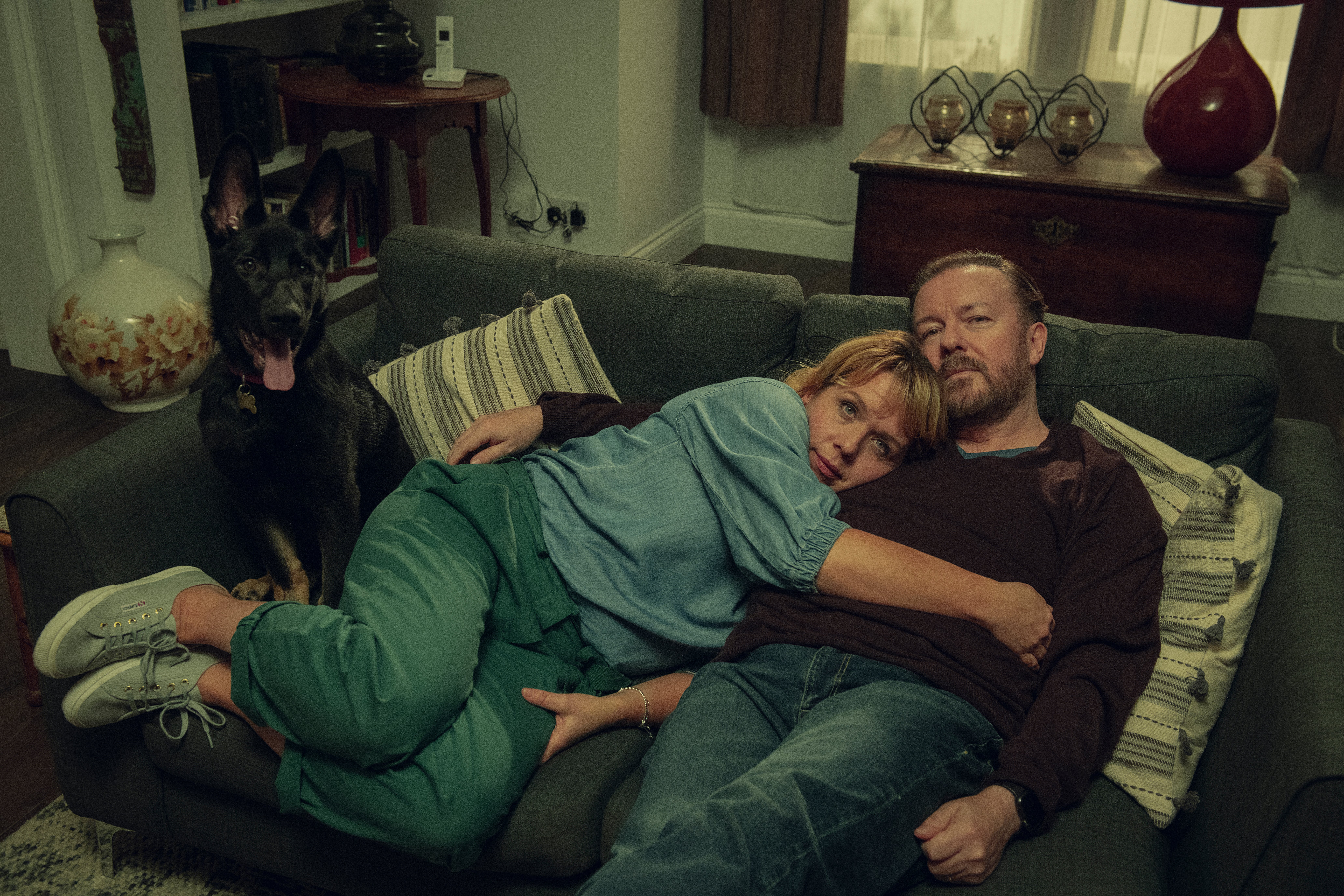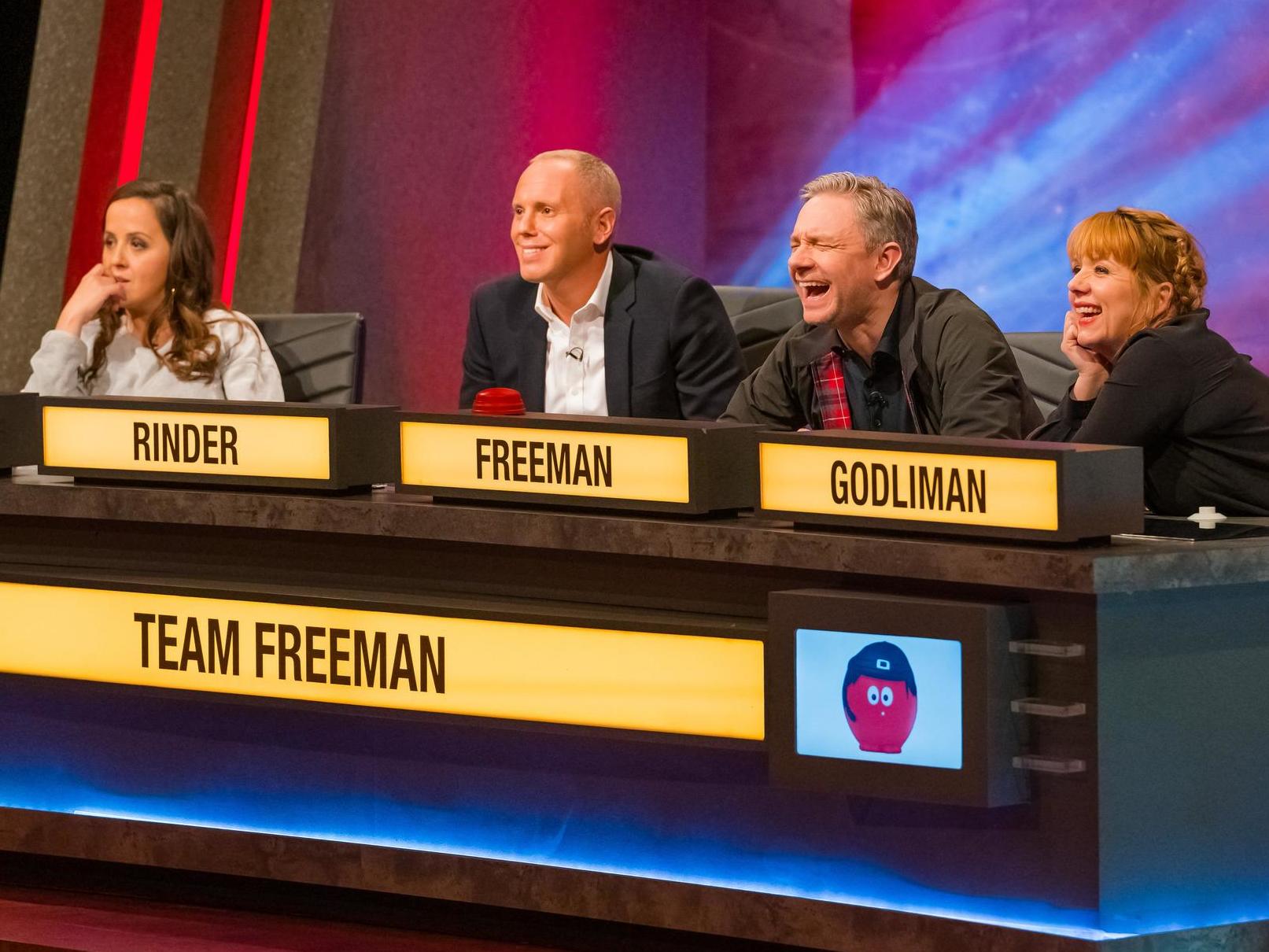Kerry Godliman: ‘A lot of panel shows are hosted by white straight guys – so you’re outnumbered’
The ‘After Life’ star talks to Annabel Nugent about working with Ricky Gervais, the meritocracy of stand-up, and realising people really do want to hear about motherhood and menstruation


Get your tits out!” Kerry Godliman can remember hearing this particular jeer during her early days of stand-up. “I suppose there was always this feeling that it was ironic,” the comedian and star of After Life says now, more than a decade later. “A lot was got away with during that time because tonally, it was never sincere. That doesn’t make it OK.”
Like all veteran comedians, Godliman has lived through a shift in her industry. A shift that means telling a woman to get her tits out on stage is less heard of nowadays. “I mean it’s about time,” she says. “For so long, we weren’t allowed to talk about being mothers or menstruating. We were told nobody was interested – but then suddenly you realise, everyone is interested.” After Godliman understood that, she marvelled at the vastness of material at her disposal. “At the moment, it’s about HRT [hormone replacement therapy] for me.”
It wasn’t a far leap for the comic, who began her career performing somewhat gonzo sketches about mundane life in London’s live scene. She has since built up an impressive CV on screen, including several appearances on Live at the Apollo, The Jonathan Ross Show and 8 Out of 10 Cats. There have been scene-stealing parts on an eclectic bunch of shows: Derek, Save Me, Call the Midwife and Channel 4’s sex work drama Adult Material – but it’s her role in After Life that clinched Godliman’s star status. No matter that she plays a dead woman.
The hit Netflix series – written and directed by Ricky Gervais – returned for its third and final season this week. Gervais plays Tony Johnson, a small-town journalist whose wife of 25 years (that’ll be Godliman), Lisa, has died of cancer. In his grief, Tony rejects social niceties and embarks on a crusade of saying and doing whatever he wants. All the while, those around him try to pierce through his new armour. Tony’s wife is one of those people, speaking to him through videos she recorded in her final days.
Their on-screen marriage might be make-believe but the relationship between Godliman and Gervais is real. In interviews, their banter reveals a close friendship, which began in 2005 when the writer cast Godliman with tiny parts in Extras and Life’s Too Short. “I’ve always been very, very flattered that Ricky keeps me in mind,” she says. “He’s such a big influence in the world of culture that when you’re involved in one of his projects, a lot of people see it. That’s exciting.”
Things changed for Godliman after her role as the saintly but practical care home manager Hannah in Gervais’s comedy Derek. Godliman has become a sort of everywoman of British TV, someone whose humour and kindness can temper even Gervais’s tart tongue. You can hear it on our call, too. Godliman has a raucous laugh that she unleashes generously in between vigorous, to-the-point answers. She’s not the type to overthink things. As she puts it, she’s prone to “boshing” it out. “When I got married, I was practically running down the aisle,” she laughs. “I just want to crack on with it. But it’s an approach to life that doesn’t offer much opportunity for reflection.”
Let’s try to reflect now, then. Godliman grew up in the suburbs of northwest London in the Seventies and Eighties. “Really nice” is how she describes her childhood. “I had a nice time. I enjoyed school. My mum and dad were lovely. I had no complaints. No distinguishing hardships or features.” Then came drama school at Rose Bruford, where she studied Ibsen and Brecht. It was an uphill slog after that. “You have to endure a lot of unemployment in this career. Everybody knows how crappy it is – what the stats for success are.” She was enthusiastic but found the uncertainty frustrating. “I couldn’t tolerate the lack of power over my own creative voice, my own career and my own income. It was just too hard.” Godliman knows it’s not the most sympathetic cause. “No one really cares – and rightly so. You’ve made a bizarre career choice and there are so many jobs that could bring more value to the world and you’ve decided to become a professional show-off?” She laughs. “And now you’re complaining!”

Godliman pivoted to stand-up. She enrolled in a stand-up course at City Lit and gigs soon followed. When I point out that comedy seems as tough a nut to crack as acting, she pauses. “Things might’ve changed since I started but what I liked about stand-up at the time was that it wasn’t as insular as the acting world. It was a meritocracy – you went to gigs and if you made people laugh you got asked back. It felt like a thing that I had far more control over than acting.”
Early reviews of Godliman’s shows are accompanied by “First Woman” headlines. Things like: Godliman is part of so-and-so venue’s first-ever all female bill. “Now it’s not a big deal to have two women on a bill, whereas before it still felt a bit token.” And so goes the enduring plight of “women in comedy”. “It’s funny,” Godliman ventures. “Because it always manages to come up in one form or another. Now it’s looking at it retrospectively but for a long time the conversation was, ‘Are women funny?’ The question has been reframed but it’s still a topic of interest or curiosity, isn’t it?” Before I can answer, Godliman concludes, frankly: “I long for the day when it doesn’t come up at all.” For now, though, she understands why it does. “I suppose women are fascinated by gender politics because we’re on the front line of it.”
Godliman has become a recognisable face on British panel shows, a litmus test for any comedian in this country and one she’s passed with flying colours. She loves being on them, but is blunt about their shortcomings. “There’s still lots of shows that are very, very male and they’ll only have one woman. Or two if we’re lucky.” She pauses for a moment. “But the problem with a lot of these shows is that they’re hosted by white straight guys, so already as a panellist you’re going to be outnumbered. It’s not about the guests, it’s the anchors and the captains who are carrying the shows.”

As is routine now, conversation inevitably turns to “the line” in comedy. Where it is. If it exists. “It’s interesting that people like talking about this at the moment,” says Godliman. “But no, nothing’s out of bounds if it’s done in the right way. Ricky is very articulate on that subject, isn’t he? Whereas I’m not really a shock comic. Occasionally I tweet something political and I get a bit of s*** for it and it doesn’t feel very nice but that’s OK. That’s part of being in a free-speech environment.”
It’s not the trolls that trouble her. “It’s the people running the country who bother me more.” At least, I think Godliman said “running”. Or maybe it was “ruining”. By this point, it seems we agree that there’s not much distinction between the two.
‘After Life’ season three is streaming on Netflix now



Join our commenting forum
Join thought-provoking conversations, follow other Independent readers and see their replies
Comments